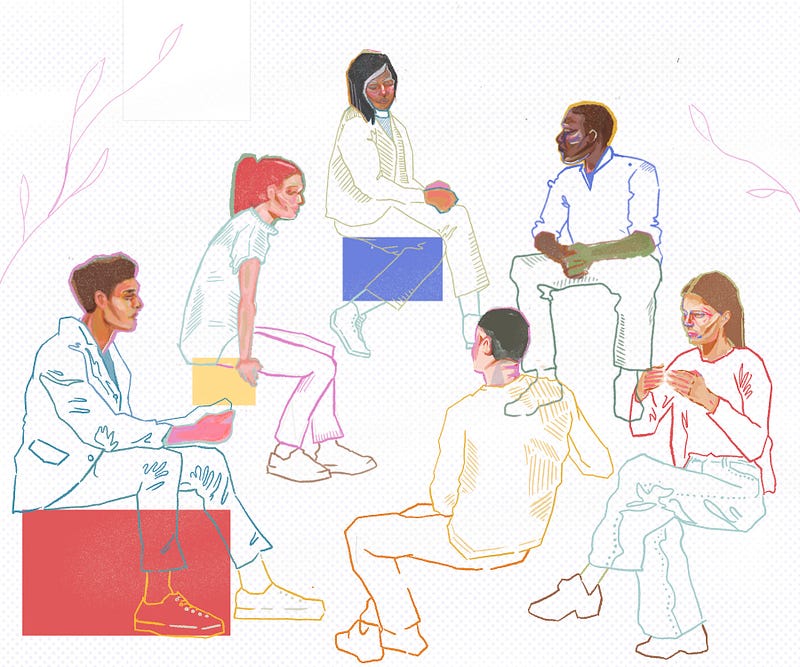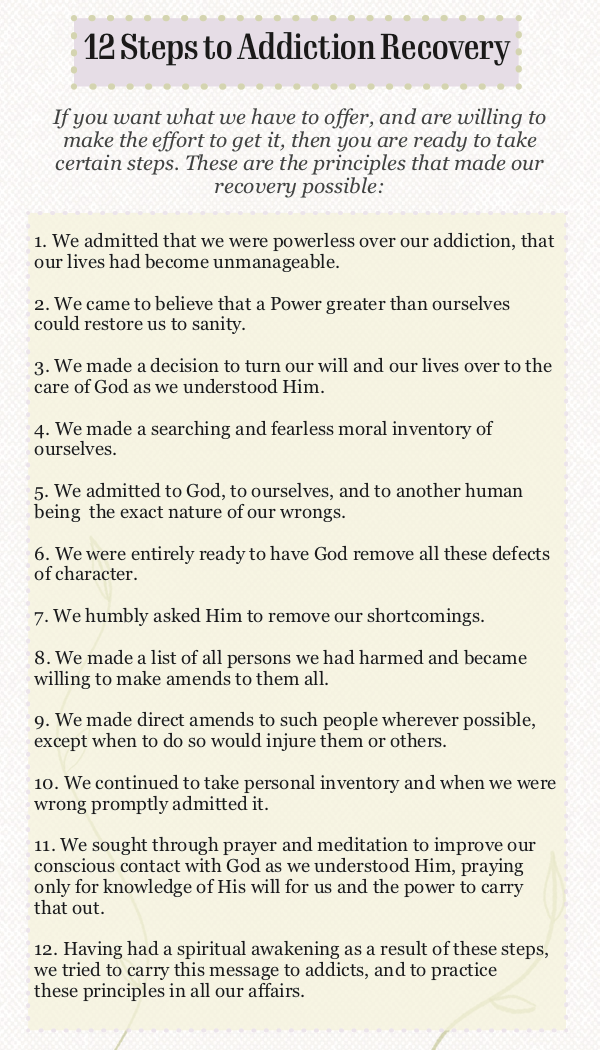One Day at a Time: From Agony to Recovery

A personal story of desperation, loss, willingness and recovery as seen through an addict’s eyes.
Story by Anonymous | Content warning: References to suicide, self-harm, depression and addiction
Editor’s note: As per 12-step program guidelines on anonymity, all names have been changed.
I don’t feel anything; numb and “unanimated spiritually from within,” tears quietly stream down my cheeks as I swallow my pain, along with a dozen bottles of medication. I lay on my bed, waiting for oblivion. The voices in my head swirl about in a frenzy.
“You can’t turn back now, it will all be over soon,” they whisper.
Ten minutes have gone and I’m still breathing, albeit drowsy.
“What’s taking so long?” I carelessly wonder, as the voices assure me of my swift demise.
I’m certain all those years of suffering will end at any moment, when suddenly my father bursts through the door. Seeing the empty prescriptions littered across the bathroom counter and my near-unconscious state, he frantically calls 911. I black out as the EMTs load me into the ambulance.
The following week is a blur, locked in the psychiatric ward; bare white walls, the sterile smell of disinfectant and occasional screams from my in-patient neighbors surround me. Doctors and social workers shuffle in and out of my room.
“We didn’t know it was that bad,” my mother says, barely holding back tears.
How could they have known? I was an expert at acting “just fine,” burying my feelings deep down and numbing the subsequent pain with a drink, joint or random sexual encounter.
I have always been an addict, but didn’t always believe it to be true.
My story began long before the unrelenting despair boiled to a point of seemingly no return. For myself, and for most of my fellows in recovery, the coping mechanisms I learned in childhood gave way to my addiction in adolescence.
My mother suffers from bipolar disorder, which is characterized by periodic shifts from manic to depressive states. For me, this meant never truly knowing how she would react on any given day. Our relationship was tumultuous, and as an only child, I often felt I had nowhere to turn for support. When I expressed my feelings to her, many times they were met with anger and outbursts. I learned early on to hide my feelings and seek external validation.
In middle school, my mother brought me to a psychiatrist after discovering self-harm cuts on my arm. I, too, was diagnosed with bipolar disorder.
Around this time, I began acting out sexually — I recall being obsessed with finding a boyfriend or girlfriend and giving out sexual favors to any classmates who gave me attention. My behavior escalated in high school. I was constantly in and out of toxic relationships, and by 16, I was sleeping with strangers and stealing from my parents’ liquor cabinet.
Once I began college, I felt the freedom to do whatever I wanted, which included compulsive sexual behavior coupled with blackout drinking and smoking marijuana constantly. Soon after, I stopped caring about myself completely.
My depression skyrocketed as my grades plummeted. All the while, my deepest desire was to be loved by a partner, but I had no sense of self-respect and hated myself to the core of my being.
Nothing — not all the weed, whiskey or sexual partners in the world — could cure the loneliness and despair I felt. I was obsessed with escaping myself, of simply being alone with my thoughts.
Though the journey to recovery differs for each individual, our reasons for joining a 12-step group and getting clean are the same: we could no longer tolerate living in agony and we longed for freedom from obsession. Narcotics Anonymous (NA) literature states the program is not concerned with who you were in the past or what drugs you used but “only in what you want to do about your problem and how we can help.”
On June 10, 2014 Tracy joined NA, got clean and has maintained her sobriety ever since. Though it matters little what form her addiction took, her ongoing recovery couldn’t be more significant. After years of suffering, Tracy said she finally feels free from the compulsion to use. Through recovery, she has learned how to respect herself, set boundaries, take care of her basic needs and trust in a higher power.
“I’ve made so many fucked up decisions in my life, why not have faith in something bigger than me?” Tracy said. “I feel so much freedom when I turn life over to my higher power.”

There is a specific 12-step program for almost any addiction, but their fundamental principles all include the same steps toward recovery and are based in non-religious affiliated spirituality. The steps are designed to help the addict imagine a higher power who can guide them, face the underlying causes of their disease, make amends and continue to stay rooted in recovery.
Because our disease makes us feel isolated, 12-step groups ensure that we are never alone. Each member works with a sponsor — another addict who has previously completed the steps — and participates in meetings and fellowship.
“I have people I can call, I have meetings I can log on to and I have a whole lot of literature that always seems to feed my soul whenever I read it,” Tracy said.
So why do we need the 12 steps? Because if it was as simple as just quitting the drug or stopping the behavior, none of us would be addicts.
Among other biological and environmental factors, our disease usually stems from childhood trauma, abuse and/or neglect. Living in such turmoil causes many to pick up destructive coping mechanisms, often seeking relief in things outside of themselves. The 12 steps address the underlying causes of our affliction and provide a spiritual solution.
After I hit rock bottom, selfishly attempting to take my own life, I flew to California and began a six-month treatment program. I still denied that I was an addict, but was nevertheless introduced to a variety of 12-step meetings. I found a program that I strongly identified with: Sex and Love Addicts Anonymous. I attended meetings regularly, got a sponsor and began working the steps.
Upon returning to Washington, I relapsed more times than I can count, but somehow always found my way back to recovery. It took me nearly two more years to finally admit I wasn’t only a sex and love addict, but an addict in general.
Today I am sober. I am unburdened from obsession and I truly love myself for the first time in my life.
Whether you’re an addict, love someone who is or are simply curious about 12-step groups, I invite you to share your story and listen to others’. It is only when we express our agony, share each other’s pain and realize our similarities that we no longer feel alone.
In a message to the addict who still suffers, Tracy said, “You have no idea how great life can be until you actually pursue it.”
No one ever fully recovers; it is an ongoing and difficult process, but continuous growth in recovery is possible. With the wisdom of the 12 steps and guidance from a higher power, any addict can stay sober and heal, one day at a time.
